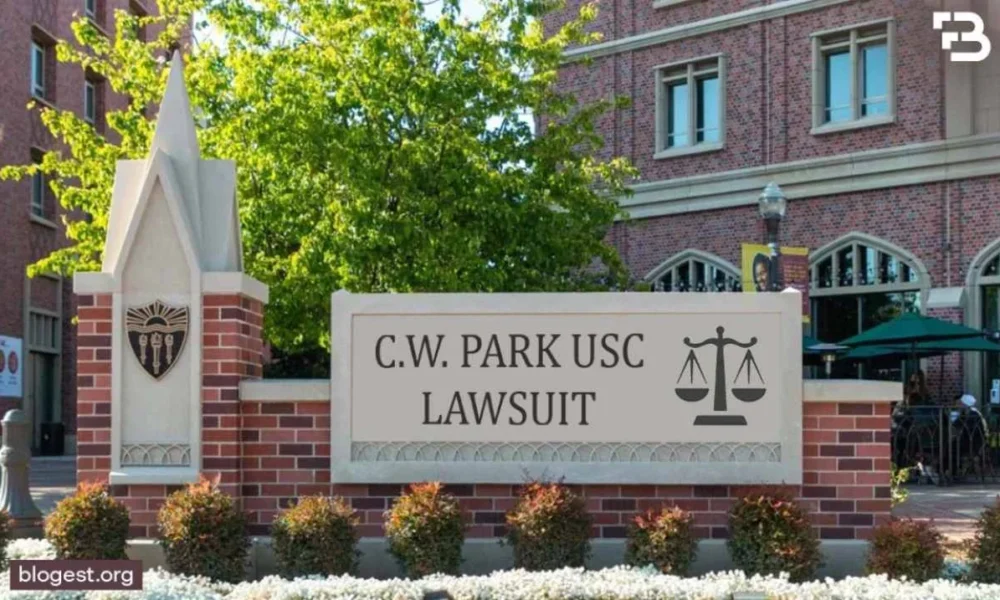The academic world is no stranger to controversy, and the lawsuit involving C.W. Park, a renowned figure associated with the University of Southern California (USC), is a testament to the complex interplay of allegations, investigations, and legal wrangling that can unfold in the realm of higher education. This article delves into the details of the C.W. Park USC lawsuit, chronicling the accusations of academic misconduct, the subsequent investigations, and the legal proceedings that have followed.
The Genesis of the Allegations: C.W. Park USC Lawsuit
The story begins with the emergence of allegations against C.W. Park, a prominent professor and researcher. Accusations of academic misconduct can taint reputations, and in the academic community, they are taken with utmost seriousness due to the potential implications for credibility and integrity.

Understanding Academic Misconduct
Academic misconduct encompasses a range of unethical behaviors, including plagiarism, fabrication of data, and other forms of deception in scholarly work. It undermines the core values of academia, such as honesty, trust, and scholarly rigor.
Initial Accusations Against C.W. Park USC Lawsuit
C.W. Park faced allegations that put into question the integrity of his research. While the specific details of the accusations remain confidential, they were serious enough to prompt a thorough investigation by USC.
Investigations and Institutional Response
Upon the surfacing of allegations, USC, like any reputable institution, was compelled to initiate a formal investigation. The objective was to ascertain the veracity of the claims and determine the appropriate course of action.
USC’s Investigative Procedures
The university’s procedures for investigating claims of academic misconduct are designed to be both thorough and fair, ensuring that all parties involved have the opportunity to present their side of the story.
The Outcome of the Investigation
While the results of such investigations are often kept confidential to protect the individuals involved, they play a crucial role in maintaining the integrity of the academic institution. The outcome can range from exoneration to disciplinary action, including termination of employment and retraction of published work.
The Legal Proceedings
The investigation’s conclusion is not always the end of the story. In some cases, like that of C.W. Park, the matter escalates to legal proceedings.
C.W. Park’s Response to the Allegations
In response to the allegations and the investigation’s findings, C.W. Park may have disputed the claims, challenging the process or the conclusions drawn by USC.
The Lawsuit Filed Against USC
The C.W. Park USC lawsuit marks the transition of the dispute from an internal matter to a legal battle. Lawsuits in such cases often revolve around claims of defamation, wrongful termination, or breaches of contract or due process.
The Impact on the Academic Community

The repercussions of academic misconduct allegations and subsequent legal battles extend far beyond the individuals directly involved.
Reputational Damage to Individuals and Institutions
For accused academics, such allegations can be career-ending. For institutions, they can lead to a loss of public trust and question the rigor of their academic oversight.
Effects on Students and Colleagues
Students and colleagues of the accused can experience a range of impacts, from disruptions in their education and research to emotional distress and a loss of mentorship.
Navigating Legal Complexities
The legal aspects of the C.W. Park USC lawsuit may involve intricate arguments and interpretations of law, as well as the policies of the academic institution.
Legal Arguments and Defense Strategies
In defending against the lawsuit, USC would likely assert the robustness of its investigative procedures and the fairness of its conclusions. Conversely, C.W. Park’s legal team would aim to highlight any perceived flaws in the process or to argue that the allegations lack sufficient evidence.
Precedents and Implications for Future Cases
The legal outcome of the C.W. Park USC lawsuit could set important precedents for how academic institutions handle allegations of misconduct and the rights of accused faculty members.
Looking Ahead
As the legal battle unfolds, many in the academic community will be watching closely. The resolution of the C.W. Park USC lawsuit will not only affect the parties involved but could also influence policies and procedures surrounding academic integrity for years to come.
Potential Reforms in Academic Policies
Depending on the outcome, universities may revisit their policies on academic misconduct, looking to strengthen safeguards against unethical behavior while ensuring fair treatment for all parties.
The Role of Transparency and Accountability
The lawsuit highlights the need for transparency in the investigation of academic misconduct and for holding individuals and institutions accountable for upholding the highest standards of scholarly work.
Conclusion
The C.W. Park USC lawsuit is a complex saga of allegations, investigations, and legal proceedings that underscores the importance of integrity in academia. As the legal process continues, the academic community must reflect on the lessons learned and work towards a future where the pursuit of knowledge is guided by ethical principles and the quest for truth.
In the end, the case serves as a reminder of the delicate balance between protecting reputations and ensuring accountability in the world of academia. The implications of the lawsuit will likely resonate for some time, prompting discussions and potentially leading to changes in how academic institutions approach allegations of misconduct.
Stay Updated with the Newest Information and Trends on Vasele

